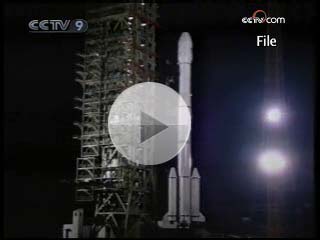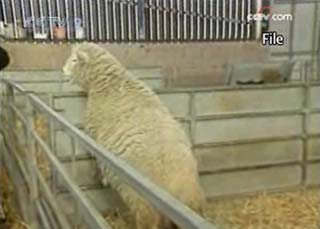------Program code: DO-090116-04141 (what's this?)
Source: CCTV.com
01-16-2009 11:11
 |
When the 26th Summer Olympic Games were held in Atlanta, the USA, in July 1996, people across China were glued to their television screens.
 |
On the second day of the Games, television viewers saw He Zhenliang, Chairman of the Chinese Olympic Committee, anxiously squatting beside veteran marksman Wang Yifu. In the finals of the men’s 10-metre air pistol event, Wang Yifu had fainted after firing his last shot. He’d been left feeling dizzy and very weak by an ear infection. When he’d arrived in Atlanta, he’d been carried out of the plane on a stretcher. In the shooting event, he’d been in the lead before taking his final shot, but missed out on the gold medal by just one tenth of a point.
Wang Yifu had received his first gun at the age of 12. It was an air gun, a gift from his father. It sparked his interest in shooting. At the Los Angeles Olympic Games in 1984, his teammate Xu Haifeng had won a gold medal and Wang Yifu, then 24, came third. Eight years later, Wang had gone on to win a gold medal at the Barcelona Olympic Games in 1992.
It takes a long time and strenuous efforts to train competitors in the slow-fire pistol and air pistol events. Wang Yifu was an expert in both; no one else in the Chinese shooting team could match his standard. Xu Haifeng, who later became the head coach of the Chinese shooting team, once said: “On the one hand, Wang Yifu maintained a reasonably high level of marksmanship. On the other hand, the Chinese shooting team had no up-and-coming competitors in the men’s pistol events.”
At the Atlanta Olympic Games the United States came first on the medals table. Sixteen Chinese athletes won gold medals, and 34 others won silver or bronze. Overall, the Chinese team came fourth in both the number of gold medals and the total number of medals.
At the Athens Olympic Games 8 years later, Wang Yifu was 44, and was participating in an Olympics for the sixth time. In the 10-metre air pistol event, he won the gold medal, 12 years after winning his first Olympic title. In an interview with the media afterwards, he was asked why he hadn’t stopped after winning his first Olympic gold medal. He said, “It’s no easy matter for the state to train an athlete.
It requires considerable financial and material resources. My salary is little more than 2,000 yuan. I couldn’t pursue my shooting career without the support of the state. It’s quite different from other jobs. An athlete can’t choose when he retires.”
In early July 1996, the news of the successful launch of a CZ-3 carrier rocket came out of the Xichang Satellite Launch Centre. The satellite it carried made it possible for viewers in every corner of the country to watch CCTV programmes, from channel 1 to channel 8.
Four months previously, at the same site, China’s newly developed CZ-3B carrier rocket had failed to launch an Intelsat-708 satellite into space. With the successful launch of the APstar-1A, China’s space industry had regained its confidence.
On July 5, a lamb was born at Roslin Institute near Edinburgh in Scotland. It was given the name Dolly by Ian Wilmut, head of the Department of Gene Expression and Development at the Institute. Dolly had been cloned from a sheep’s mammary gland cells. Nine months later, a report on the clone was carried in the British journal “Nature”. Within two weeks, the Roslin Institute had received hundreds of letters, including several from people expressing the wish that they, too, could be cloned.
